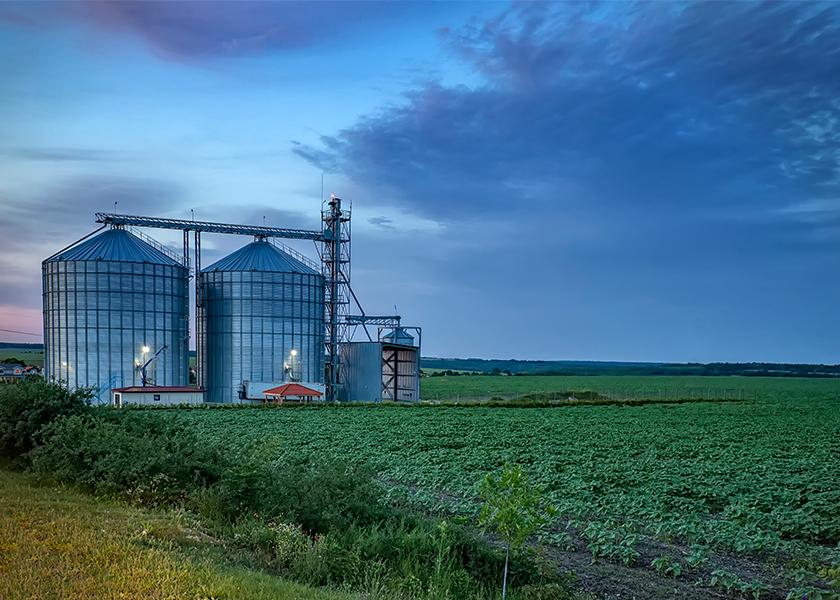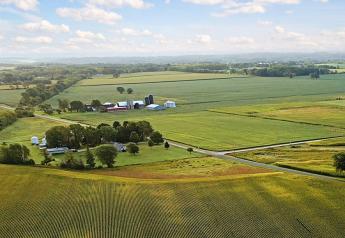Evening Report | Aug. 24, 2021

Click here for weekly Commitments of Traders charts.
Check our advice monitor on ProFarmer.com for updates to our marketing plan.
USDA makes long-awaited adjustments to CFAP 2 for livestock and poultry contract growers… USDA announced today that it is updating the Coronavirus Food Assistance Program 2 (CFAP 2) for contract producers of eligible livestock and poultry and producers of specialty crops and other sales-based commodities. USDA’s Farm Service Agency set an Oct. 12 deadline for eligible producers to apply or modify applications for CFAP 2.
The Consolidated Appropriations Act of 2021 provides up to $1 billion for payments to contract producers of eligible livestock and poultry for revenue losses from Jan. 1, 2020 through Dec. 27, 2020. USDA says, “Contract producers of broilers, pullets, layers, chicken eggs, turkeys, hogs and pigs, ducks, geese, pheasants and quail may be eligible for assistance. This update includes eligible breeding stock and eggs of all eligible poultry types produced under contract.”
Under today’s change, contract producers can now elect to use eligible revenue from the period of Jan. 1, 2018 through Dec. 27, 2018, rather than the same dates in 2019, if that is more representative. “The difference in revenue is then multiplied by 80% to determine a final payment. Payments to contract producers may be factored if total calculated payments exceed the available funding and will be made after the application period closes,” USDA details.
USDA also added other flexibilities to account for increases to operation size in 2020 and for situations where a contract producer did not have a full period of revenue from Jan. 1 to Dec. 27 for either 2018 or 2019. Aid is also available for new contract producers who started farming in 2020.
USDA also amended its CFAP 2 payment calculation for sales-based commodities (mainly specialty crops) to allow producers to substitute 2018 sales for 2019 sales. Grass seed has also been added as an eligible sales commodity for CFAP 2.
Signup for CFAP 2 reopened in March and will remain open through Oct. 12. Find more details here.
Frost-hit coffee producers in Brazil may shift some acres to grains… Brazilian coffee farmers were badly hit by a series of frost/freeze events earlier this summer. Some of those producers are now removing dead trees and are expected to switch a portion of their coffee acres over to grains. The government estimates 11% of the area planted to coffee was impacted by the hardest-hitting cold front, especially in Minas Gerais. Other producers are pruning trees and waiting for rains to see if they can recover.
A USDA Foreign Ag Service Report from May estimates Brazil planted 2.42 million hectares (5.98 million acres) to coffee in 2020-21. Even if every single acre that was damaged was switched to grains, that would only add roughly 658,000 acres, based on Brazil’s 11% damage assessment.
Pelosi, moderates reach budget deal… House Speaker Nancy Pelosi (D-Calif.) reached an agreement with her centrist colleagues today for pushing through President Joe Biden’s multitrillion-dollar economic overhaul, setting up a procedural vote to begin work on the sweeping legislation. It would allow adoption of the Senate’s $3.5 trillion tax and spending blueprint and set up a final vote on the $550 billion (new funding; $1 trillion total) infrastructure deal by Sept. 27. It came after a pressure campaign by Democratic leaders that included calls to lawmakers by the president and his top aides.
USDA proposes framework for improving surveillance for SARS-CoV-2 and other emerging zoonotic diseases… USDA announced it will dedicate $300 million in the American Rescue Plan Act toward surveillance for SARS-CoV-2 and other emerging zoonotic diseases in susceptible animals. The funding is meant to build an early warning system to alert public health partners of possible threats so they can more quickly take steps to prevent or limit the next global pandemic. USDA’s Animal and Plant Health Inspection Service is inviting public comment on a strategic framework outlining how it will focus its efforts to “prevent, detect, investigate and respond to SARS-CoV-2, the virus that causes Covid-19, as well as other emerging and zoonotic diseases that could pose a threat to both people and animals.”
Taliban says it will no longer allow Afghans to go to the Kabul airport to flee the country… The Taliban said today it will no longer allow Afghan nationals to leave the country. The group remains opposed to an extension of evacuation flights beyond Aug. 31, an extension Biden said may be necessary.
“The way to the airport has been closed now. Afghans are not allowed to go there now, foreigners are allowed to go but we have stopped Afghan nationals to go because the crowd is more, there is danger that people will lose their lives, there might be a stampede,” Taliban spokesman Zabihullah Mujahid told reporters during a news conference today.
India to permit imports of 1.2 MMT of GM soymeal for feed… India has relaxed its rules on imports to permit shipments of 1.2 MMT of genetically modified soymeal, the government announced Tuesday. Shipments must arrive before Oct. 31. The move is meant to help the poultry industry, which has struggled with a tripling of animal feed prices.






